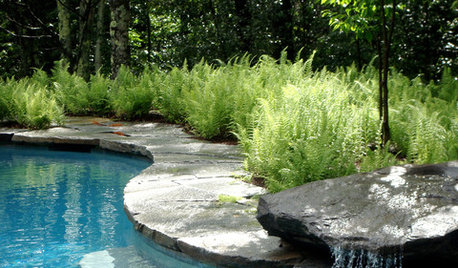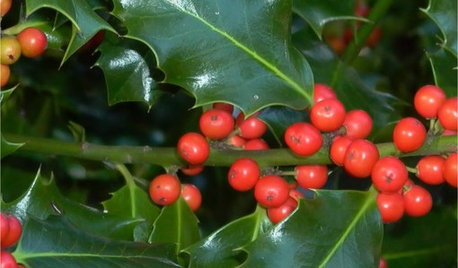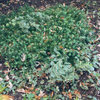I LIKE my ivy and have a q.
e_f_g
12 years ago
Related Stories

GROUND COVERSNative Alternatives to English Ivy, Japanese Pachysandra and Periwinkle
These shade-loving ground covers are good for the environment and say something about where you are
Full Story
GARDENING GUIDES9 Holly and Ivy Plants for Good Tidings in the Garden
Spread Christmas joy all year round with the gorgeous foliage and bright berries of these evergreen plants
Full Story
HOME TECHWhat if James Bond's Q Accessorized Your Home?
Play spy and boost home security the stylish way, with hidden cameras and other high-tech gadgets as accessories
Full Story
INSIDE HOUZZData Watch: Confidence in the Renovation Industry High but Softening
The Q2 2016 Houzz Renovation Barometer indicates builders and remodelers are feeling good about the industry, designers slightly less so
Full Story
DIY PROJECTSArrange a Gift Floral Bouquet Like a Pro
For a fall gift bouquet that looks expensive but is (almost) dirt cheap, just follow this step-by-step guide
Full Story
SHOP HOUZZShop Houzz: Style Flowers Like a Pro
The right tools, creative vessels and tips make arranging flowers easy
Full Story
DECORATING GUIDESThe Dumbest Decorating Decisions I’ve Ever Made
Caution: Do not try these at home
Full Story
LIFEThe Polite House: How Can I Kindly Get Party Guests to Use Coasters?
Here’s how to handle the age-old entertaining conundrum to protect your furniture — and friendships
Full Story
EXTERIORSHelp! What Color Should I Paint My House Exterior?
Real homeowners get real help in choosing paint palettes. Bonus: 3 tips for everyone on picking exterior colors
Full StoryMore Discussions








Iris GW
flora_uk
Related Professionals
Tempe Landscape Contractors · Downey Landscape Contractors · El Segundo Landscape Contractors · Eustis Landscape Contractors · Round Lake Landscape Contractors · Stony Brook Landscape Contractors · University City Landscape Contractors · Altadena Fence Contractors · Charlotte Fence Contractors · Eastvale Fence Contractors · Independence Fence Contractors · Memphis Fence Contractors · Novato Fence Contractors · Castle Rock Siding & Exteriors · San Bernardino Siding & Exteriorse_f_gOriginal Author
rhizo_1 (North AL) zone 7
flora_uk
tsugajunkie z5 SE WI ♱
theresa2
botann
railroadrabbit